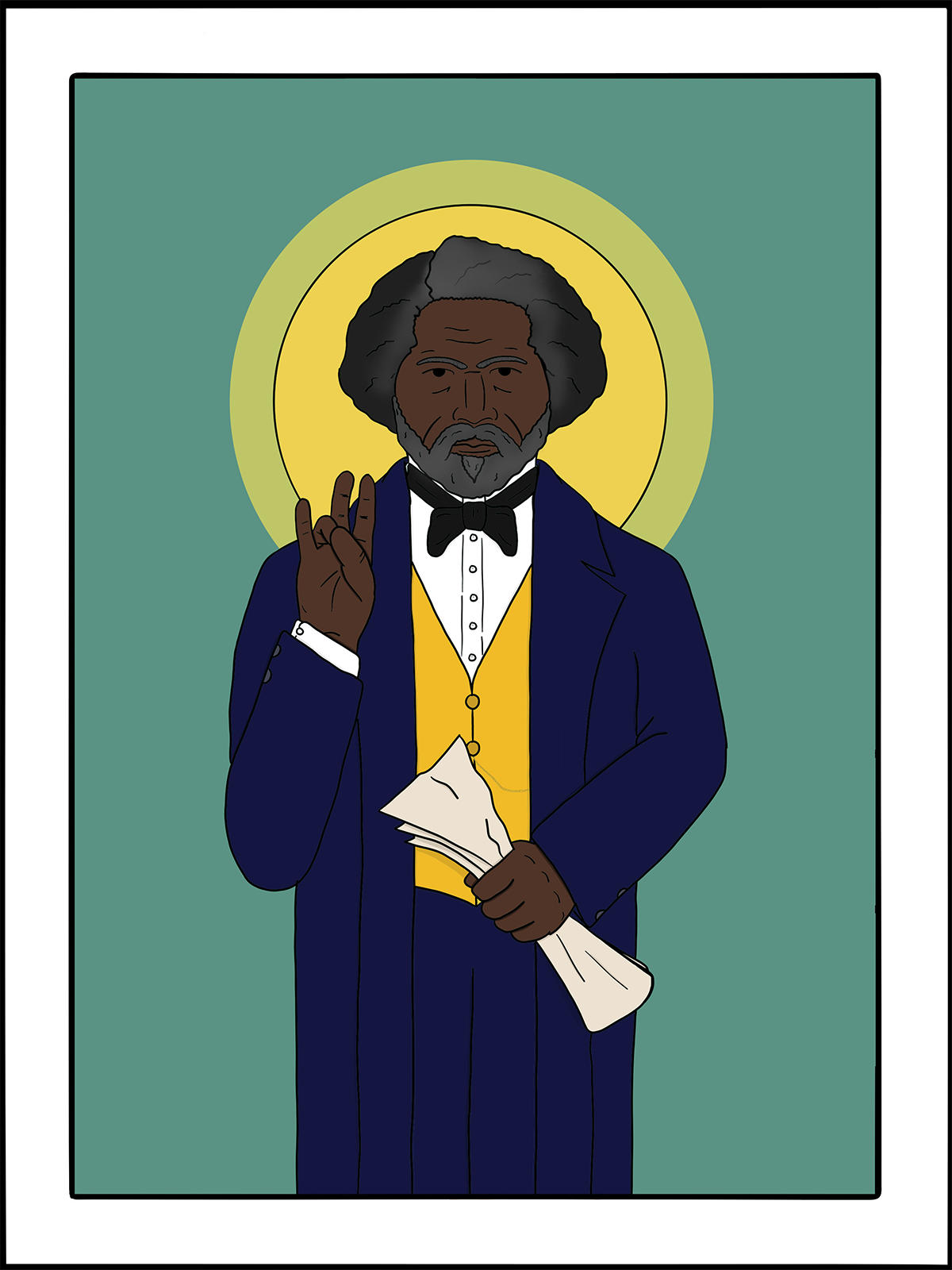
February 20
Frederick Douglass
Social Reformer, 1895
art by Rev. Kirsten Kohr of Uhrichsville, Ohio Almighty God, we bless your Name for the witness of Frederick Douglass, whose impassioned and reasonable speech moved the hearts of people to a deeper obedience to Christ: Strengthen us also to speak on behalf of those in captivity and tribulation, continuing in the way of Jesus Christ our Liberator; who with you and the Holy Spirit dwells in glory everlasting. Amen.
Born a slave in February 1818, Frederick Douglass was separated from his mother at the age of eight and given by his new owner, Thomas Auld, to his brother and sister-in-law, Hugh and Sophia Auld. Sophia attempted to teach Frederick to read, along with her son, but her attempt put a stop to this, claiming that “it would forever unfit him to be a slave.” Frederick learned to read in secret, earning small amounts of money when he could and paying neighbors to teach him.
In 1838, Frederick Bailey (as he was then known) escaped and changed his name to Frederick Douglass. At the age of 14, he had experienced a conversion to Christ in the African Methodist Episcopal Church, and his recollection of that tradition's spiritual music sustained him in his struggle for freedom: "Those songs still follow me, to deepen my hatred of slavery, and quicken my sympathies for my brethren in bonds.”
An outstanding orator, Douglass was sent on speaking tours in the Northern States sponsored by the American Anti-Slavery Society. The more renowned he became, the more he had to worry about recapture. In 1845, he went to England on a speaking tour. His friends in America raised enough money to buy out his master's legal claim to him so that he could return to the United States in safety. Douglass eventually moved to New York and edited the pro-abolition journal North Star, named for the fleeing slave's nighttime guide.
Douglass was highly critical of churches that did not disassociate themselves from slavery. Challenging those churches, he quoted Jesus’ denunciation of the Pharisees: "They bind heavy burdens and grievous to be borne, and lay them on men's shoulders; but they themselves will not move them with one of their fingers" (Matthew 23:4).
A strong advocate of racial integration, Douglass disavowed Black separatism and wanted to be counted as equal among his white peers. When he met Abraham Lincoln in the White House, he noted that the President treated him as a kindred spirit without one trace of condescension. Douglass died in 1895.
Excerpted directly from “Lesser Feasts and Fasts 2022,” p. 104-105.
Lessons and PsalmIsaiah 32:11-18
Psalm 85:7-13
Luke 4:14-21
Preface of a Saint (2)

